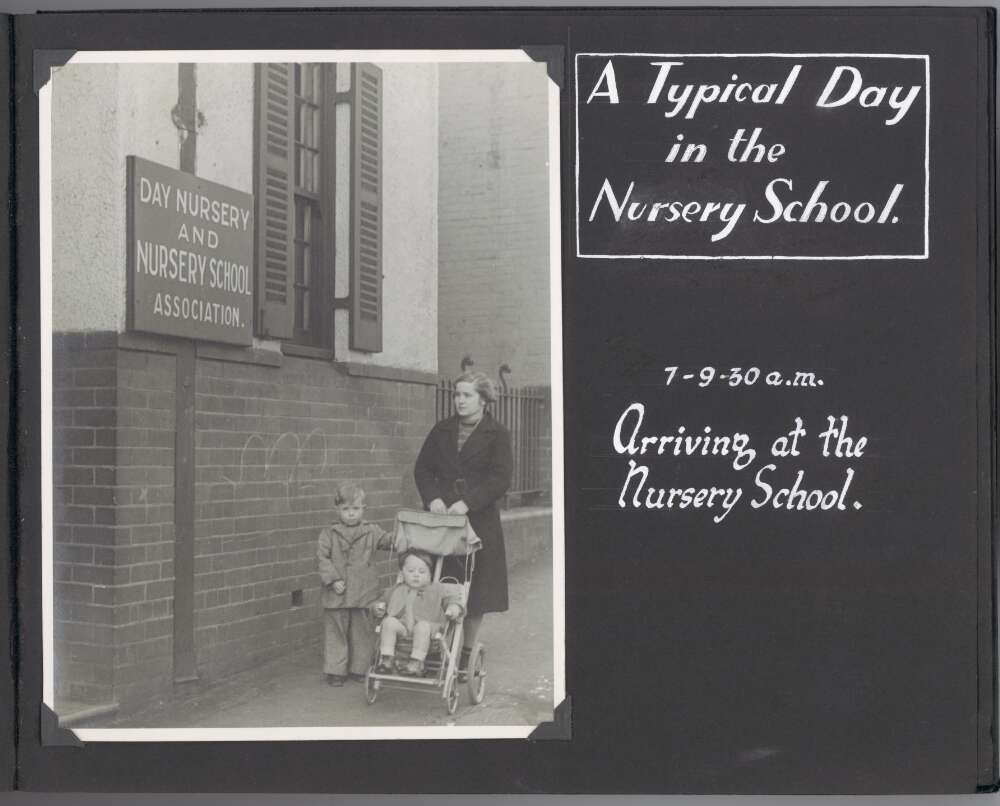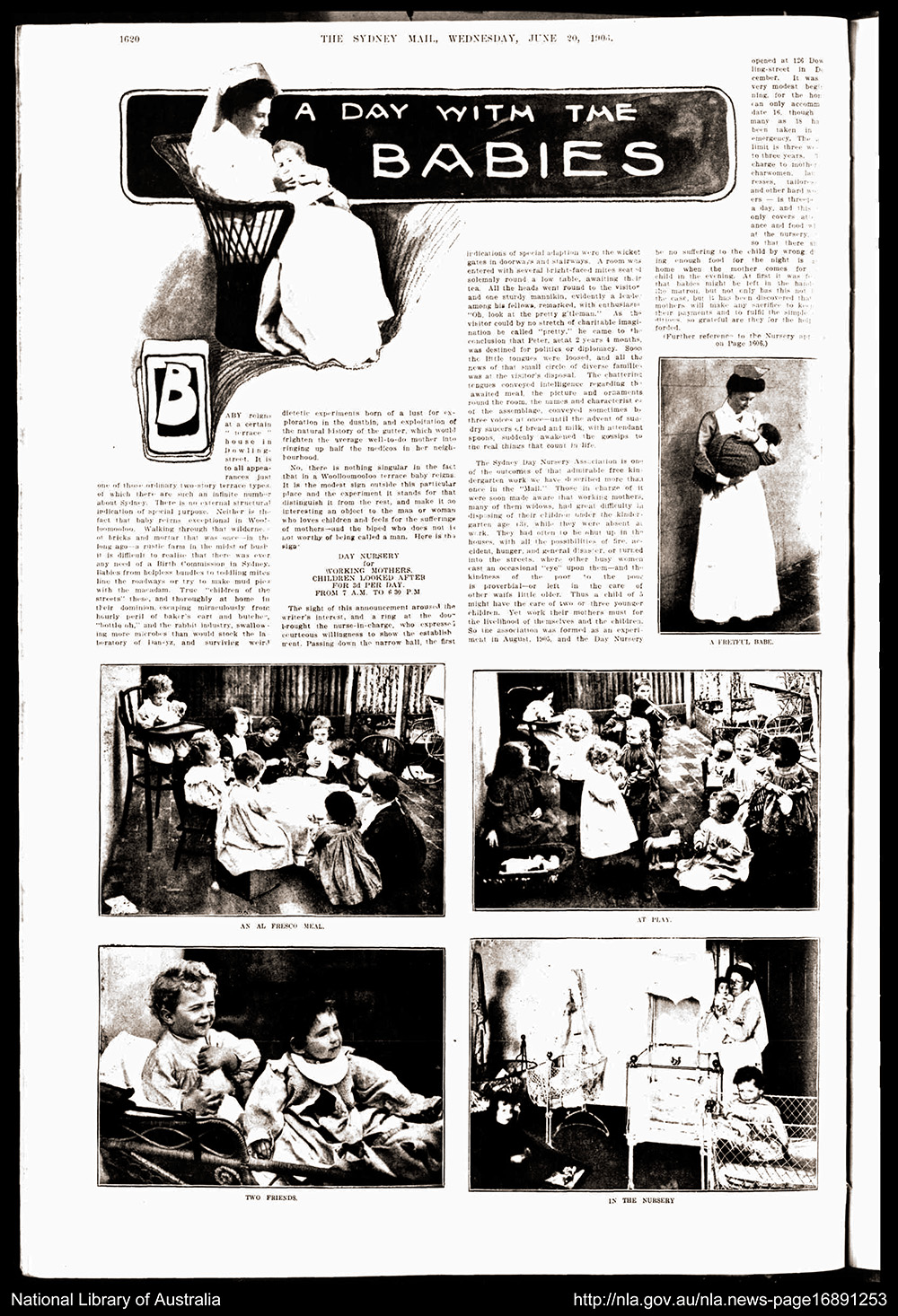The Dictionary of Sydney was archived in 2021.
'The difficulties that beset the paths of working mothers'
 Arriving at nursery school, October 1939, courtesy National Library of Australia (nla.ms-ms2852-19-9x)
Arriving at nursery school, October 1939, courtesy National Library of Australia (nla.ms-ms2852-19-9x)
Listen to Lisa and Alex on 2SER here
The burden or job of childcare often falls to women. Today working women have a variety of options for childcare: aside from immediate family, there are family day care centres, childcare centres and kindergartens. But for much of the 19th century, women in Sydney were entirely reliant upon family and neighbours, and even their older children, to care for their babies and toddlers while they earned a crust. Only the wealthy few could afford a nanny or domestic servant. It wasn't until 1895 that feminist Maybanke Anderson worked with other female reformers to found the Kindergarten Union. The first Free Kindergarten was set up in Sydney to assist working mothers in Woolloomooloo. In 1903 however, the Kindergarten Union decided to exclude children under the age of three, on the basis that infants required nurses, rather than teachers. This left many poor working mothers in a pickle. Two years later another group of middle-class women, all with business connections and feminist reformist beliefs, got together to found the Sydney Day Nursery Association. They believed a creche was needed to assist working women. It was to be '…no cold, remote charity, but an institution started by fellow women, who fully realise the difficulties that beset the paths of working mothers.' A Day with the Babies, Sydney Mail June 20 1906 p1620 via Trove
A Day with the Babies, Sydney Mail June 20 1906 p1620 via Trove

Categories
Blog
2SER Breakfast
Alex James
childcare
children
day care
education
feminism
International Women's Day
IWD 2020
Kindergarten Union
KU Children's Services
labour
Lisa Murray
preschool
SDN
Sydney Day Nursery
sydney history
welfare
women
work

